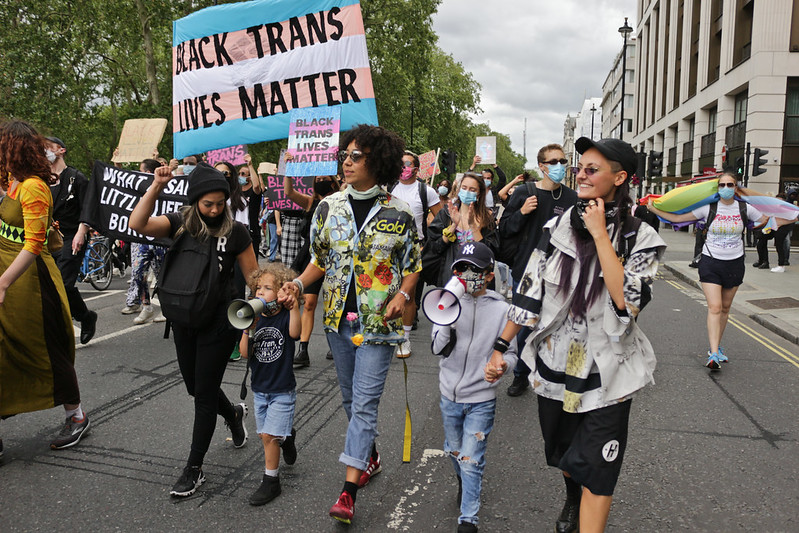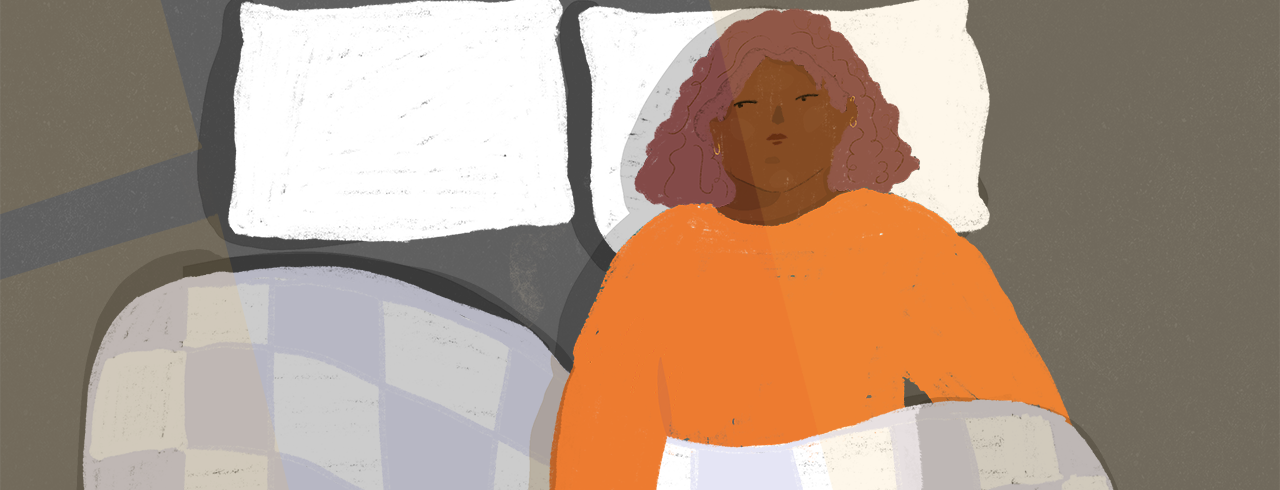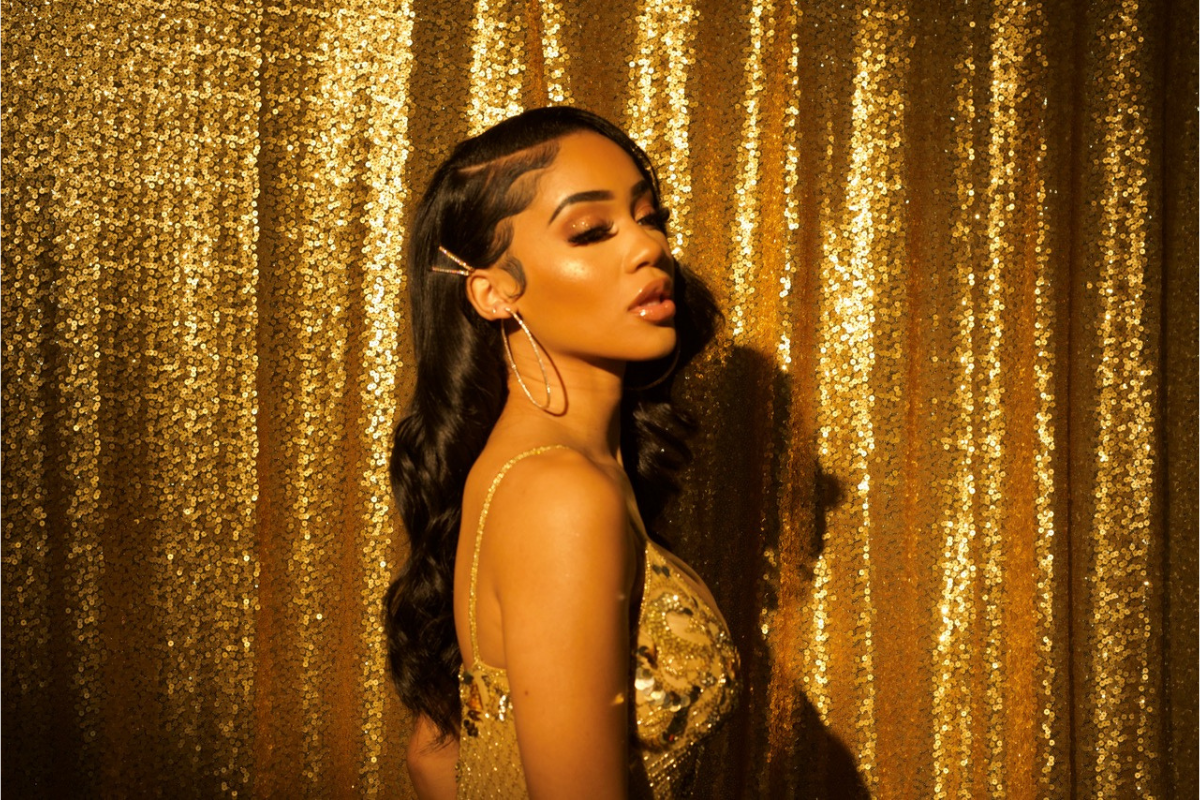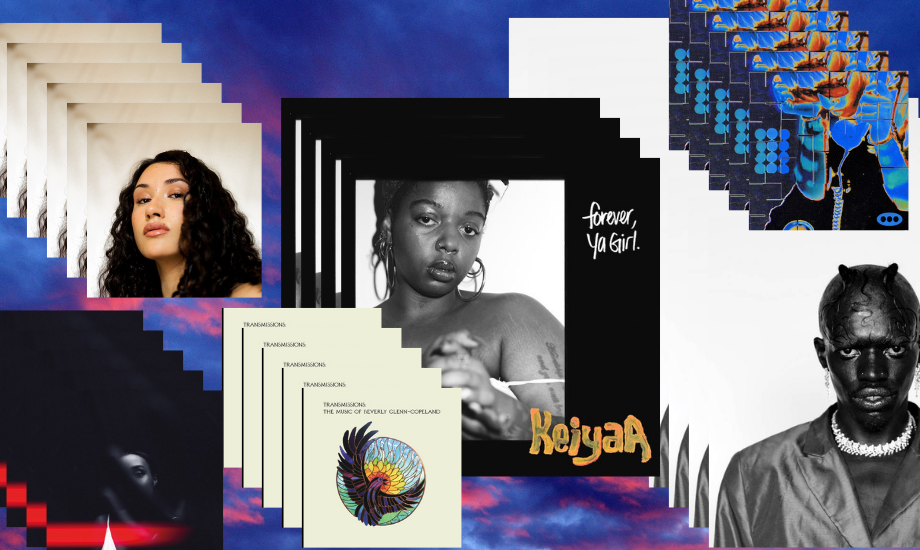
Return of the Ankh to Anger Management: albums that were hidden gems of the decade
gal-dem
27 Dec 2019
As the decade winds down, we thought it was a nice excuse to revisit some albums that have meant something to us this past 10 years. Of course, pretty much every publication has done their albums of the decade – and, really, you lot already know why Solange and Beyoncé and Frank and Kanye ruled the 2010s.
So instead, we decided to ask our writers to highlight some of their favourite hidden gems, across genres and borders. From releases that you loved but forgot to releases you’ll maybe never have heard of, but might fall in love with, our tastes are eclectic and lush. The 2010s had peaks and troughs, for sure, but there’s been so much music magic that it’s been a blessing to support.
2010: Erykah Badu – New Amerykah Part Two: Return of the Ankh
Hotep-inspired title aside, Ms Badu’s fifth studio album is a true product of the internet age. Having learnt how to make music on GarageBand after being shown by her son, Erykah worked on over 75 songs and initiated their release with 2008 album New Amerykah Part One (4th World War). Released on the cusp of the ‘10s and glistening with a star-studded line-up including Lil Wayne and Bilal, Erykah collaborated with legendary hip hop producers Madlib, of recent MadGibbs fame and the late, great J Dilla. In typical Erykah fashion, she flits between R&B, funk and hip-hop whilst mainly exploring love – in all its forms. Love lost – in album opener ‘20 Feet Tall’, love of money in the aptly titled ‘Turn Me Away (Get Munny)’. This underrated gem of an album also gave us controversial single ‘Window Seat’, which was criticised for its allusions to the death of President John F. Kennedy.
- Rahel Aklilu
2011: Sona Jobarteh – Fasiya
Within Griot families from West Africa, it is a tradition for the role of Kora virtuoso to be passed from father to son. Jobarteh is the first woman from an illustrious Griot family to be chosen. Fasiya is her second album. It addresses love, culture, identity, compassion and gender roles. Her soulful vocals paired with her ethereal Kora playing attracts worldwide listeners. No matter what language her listeners speak, her music has the ability to resonate with them. Both traditional and innovative, the tracks ‘Jarabi’, ‘Gainaako’ and ‘Fatafina’ are particularly strong for listeners wanting to appreciate both the old and new.
– Nic Crosara
2012: Santigold – Master of My Make-Believe
For those of us who were teens at the turn of the decade and the height of Tumblr and music blogging, Santigold was often scattered across our feeds with a melanin-infused boldness and an inimitable twist on alternative music that felt profound. Her sophomore album ‘Master of My Make-Believe’ built upon many of the reasons we initially fell in love – her nonchalant delivery of playful yet empowering lyrics, her refusal to let herself be restricted by genre and, of course, those stomping, militaristic beats and jittery rhythms. Welding together a hybrid patchwork of influences, from dub and punk to dancehall and indie, Santigold’s uncompromising artistry occupies an unparalleled space in the left-leaning pop sphere of the 2010’s.
– Tanya Akinola
2013: Kelela – Cut 4 Me
Honestly, did Kelela invent sex? That’s a joke (we all know that was Janet), but seriously, Kelela really did something with Cut 4 Me that would push left-field sonics, sexuality and sensuality into the foreground in a way that felt kind of revolutionary. For me, this is the definitive release when it comes to rhythm and grime (R&G), merging softness and vulnerability with cutting edge beats that drew from the underground – the production credits are a who’s who of some of the most interesting producers of the last 10 years. This was Kelela’s debut project, and it was fascinating, fractured, soft yet hard and kind of mesmerisingly deviant, all in a way which would set the tone for someone who would low-key be an era-defining artist.
– Tara Joshi
2014: Mitski – Bury Me At Make-Out Creek
The third record from Mitski Miyawaki, Bury Me At Makeout Creek was the first to truly prick the ears of the mainstream. And rightly so – distilling the best bits of 90s college rock, Simpsons-slacker punchlines and the lyrical theatrics of turn-of-the-century emo into one tight package, this was a record that suited being cranked up loud in your beat-up car just as easily as it did a session of anguished headphone listening in the privacy of your bedroom. Best of all, it would lay the groundwork for what would come two years later – Puberty 2’s wide-reaching exploration of musical styles that would finally reveal the true extent of her voice’s quiet power. On a list of underrated work, Make Out Creek should be celebrated for the artistic doors it unlocked.
– Jenessa Williams
2015: ABRA – Rose
At the height of alternative R&B, when The Weeknd and FKA twigs were creating ripples, ABRA became a buried jewel in the movement. But her self-produced debut album Rose, from 2015, is timeless. With it, ABRA, a singer born in Queens, New York, who spent eight years living in London as a child, created a sound without borders, that refuses to settle for a home in one genre. Instead, the artists’ love songs float from goth-smoked R&B to candy-induced electro-pop synths. The singer songwriter’s debut is led by a drum kicked production but also makes way for some solo keyboard silked tunes. From her haunting vocals to her arm raising instrumentals, the Darkwave Duchess’ music translates from an isolated late-night listen to a crowded, rainbow-lit dancefloor.
– Melissa Kasule
2016: Nao – For All We Know
Shortly following her nomination as BBC’s Sound Of 2016, Nao dropped the stellar debut album, For All We Know – a solid body of work which blends an eclectic mix of genres to create a hybrid of modern funk-soul. ‘Get To Know Ya’, produced by Jungle, opens the record with its unconventional electronic R&B grooves, before later climaxing with the lead-single ‘Bad Blood’ which truly shows the depths to Nao’s raunchy vocals. The real value in For All We Know is that it speaks with the weight of lessons learned. We’re taken on a journey of self-growth, friendships and toxic relationships. It’s a familiar theme, but somehow Nao makes it refreshing.
– Soraya Stanley
2017: Rafiki Jazz – Har Chand Sahara
At a time in the world where being “different” is being attacked, Sheffield-based collective of local and migrant artists, Rafiki Jazz, are a beacon of hope who celebrate unity in diversity through their music. The best example being their 2017 album Har Dam Sahara, an underrated but spell-binding collection of experimental devotional songs. The octet, with members from four continents, makes elegant yet powerful music that transcends language and cultural barriers by merging modern British music with Sufi Ghazal, Coptic hymns and Hebrew poetry, all unified by a mesmerising symphony of West African kora, Caribbean steel pans, Indian tabla, Brazilian berimbau and Arabic oud. Fittingly, Rafiki means “friend” in Swahili and “Har Dam Sahara” roughly translates to “accompanying you every second”. So, in trying times, Rafiki Jazz is everyone’s friend, standing right by you, comforting you with the warmth of music.
– Malvika Padin
2018: CHAI – Pink
CHAI is a four-piece all-female Japanese band that are redefining what it means to be “kawaii” or “cute”. Their debut album, PINK, fuses the technical rhythm section of neo-disco with the mood of punk. They present this through their rejection of the expectations that Japanese women are held to. N.E.O, Boyz Seco Men, Sayonara Complex and Kawaii Hito translate well to British audiences and encapsulates the band’s sound. CHAI is a great place to start for listeners wanting to expand their cultural horizons. Their music ensures you will have fun whilst doing so!
– Nic Crosara
2019: Rico Nasty – Anger Management
Some might know her as Maria-Cecilia Simone Kelly, others as Trap Lavigne. One thing however is certain, Rico Nasty cannot be labelled or boxed in. The Maryland native brings a special blend of trap, punk, hip-hop and nu-metal in a way never seen in mainstream rap. Following her 2018 debut Nasty, this nine-track tape, produced by former DM DJ Kenny Beats. begins as an exploration of pure rage and chaos, with Rico’s gravelly vocals opening with “KENNY! IT BE THE SAME THING JUST ON A DIFFERENT DAY”. This progression of the mixtape is akin to a therapy session, with features from EDM/Trap producer Baauer and EarthGang. By the last song ‘Again’, Rico has mellowed down and sings of the pitfalls of fame and fortune. On Anger Management, we are not only encouraged to partake in rage but to enjoy it with a side serving of bass.
– Rahel Aklilu
You can listen to our albums of the decade (plus lots of other small gems from the past 10 years) here:









